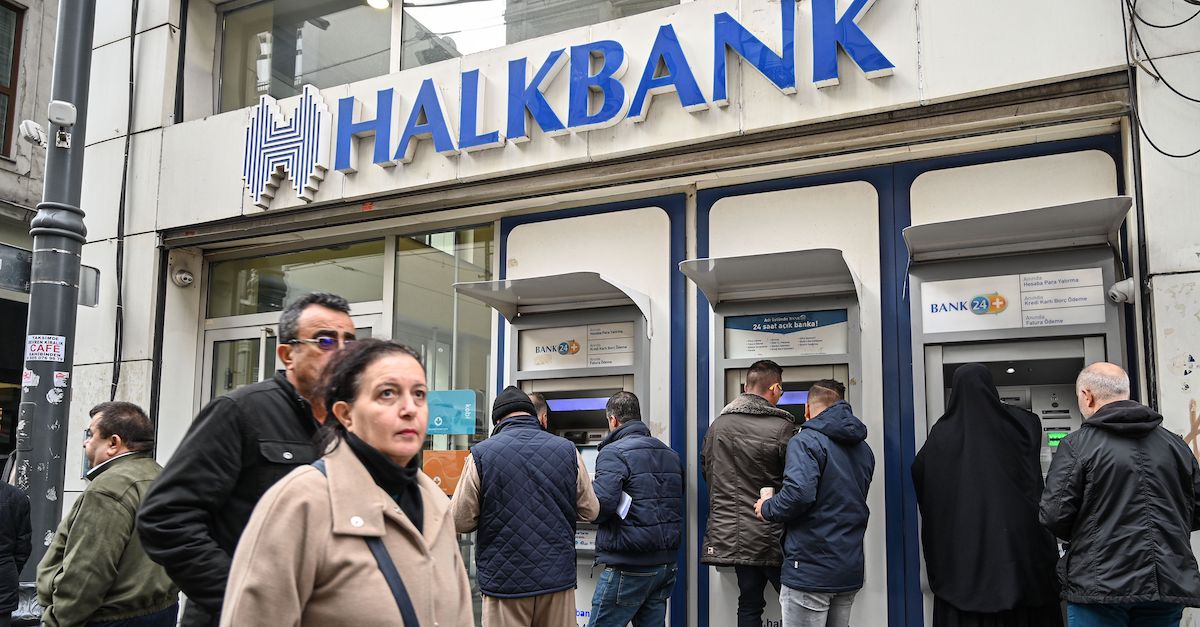
The Supreme Court agreed to hear Halkbank’s appeal in a case charging Turkey’s state-run bank with laundering billions of dollars to violate sanctions against Iran. The prosecution generated widespread attention because of former President Donald Trump’s reported efforts to scuttle the case as a favor to Turkey’s leader Recep Tayyip Erdoğan.
The Halkbank case grew out of the prosecution of Reza Zarrab, a gold trader known as the “Turkish Gatsby.” In 2017, Zarrab agreed to cooperate with the government after pleading guilty to laundering billions in Iranian oil money. The government’s evidence showed his letter to to Iran’s former hardline leader Mahmoud Ahmadinejad discussing “economic jihad.”
Before he pleaded guilty, Zarrab was represented by Trump’s lawyer Rudy Giuliani, who embarked on a quasi-diplomatic mission between Turkey’s capital of Ankara and Washington, D.C., in order to broker a prisoner swap that would have made the case effectively disappear. The effort, as reported by the New York Times, included an Oval Office meeting with then-Secretary of State Rex Tillerson.
That campaign failed. Zarrab pleaded guilty, and his testimony helped convict Halkbank’s ex-manager Hakan Atilla. The bank itself was subsequently charged after that.
The Trump administrations alleged interference in the case, however, did not relent.
Since that time, two other prominent Trump-era figures — former Manhattan U.S. Attorney Geoffrey Berman and ex-National Security Advisor John Bolton — wrote memoirs alleging that the White House tried to intervene in the case.
In his memoir The Room Where It Happened, Bolton characterized Trump’s interest in the case on Erdoğan being one of the “dictators [Trump] liked.”
Berman saw Trump’s hidden hand behind then-AG Barr’s pressure to steer the case toward a lopsided settlement.
“Barr, always eager to please his boss, appeared to be doing Trump’s bidding,” Berman wrote in his book Holding the Line.
As the backdoor pressure campaigns in the Halkbank case generated regular headlines, Halkbank also pursued a legal offensive to dismiss and delay the case, which has been pending since 2019.
In October 2021, a three-judge panel of the Second Circuit rejected the bank’s claims that it should be immune from criminal prosecution.
“Halkbank, an instrumentality of a foreign sovereign, is not entitled to immunity from criminal prosecution at common law,” U.S. Circuit Judge Jose Cabranes, a Bill Clinton appointee, wrote for the unanimous panel at the time.
U.S. Circuit Judges Amalya Kearse, a Jimmy Carter appointee, and Joseph Bianco, a Trump appointee, joined the opinion last year.
Just shy of a year after that ruling, Supreme Court granted Halkbank’s petition for certiorari without comment.
“SCOTUS works in mysterious ways,” noted Steven Cook, a Turkey expert with the Council on Foreign Relations.
Emphasizing that he is not a lawyer, Cook demurred from sharing legal analysis but described the effect of the ruling if the top U.S. court ultimately found in Halkbank’s favor.
“If Halkbank can claim sovereign immunity, that opens the doors for a lot of [state-owned enterprises] in other countries to break US laws,” Cook told Law&Crime.